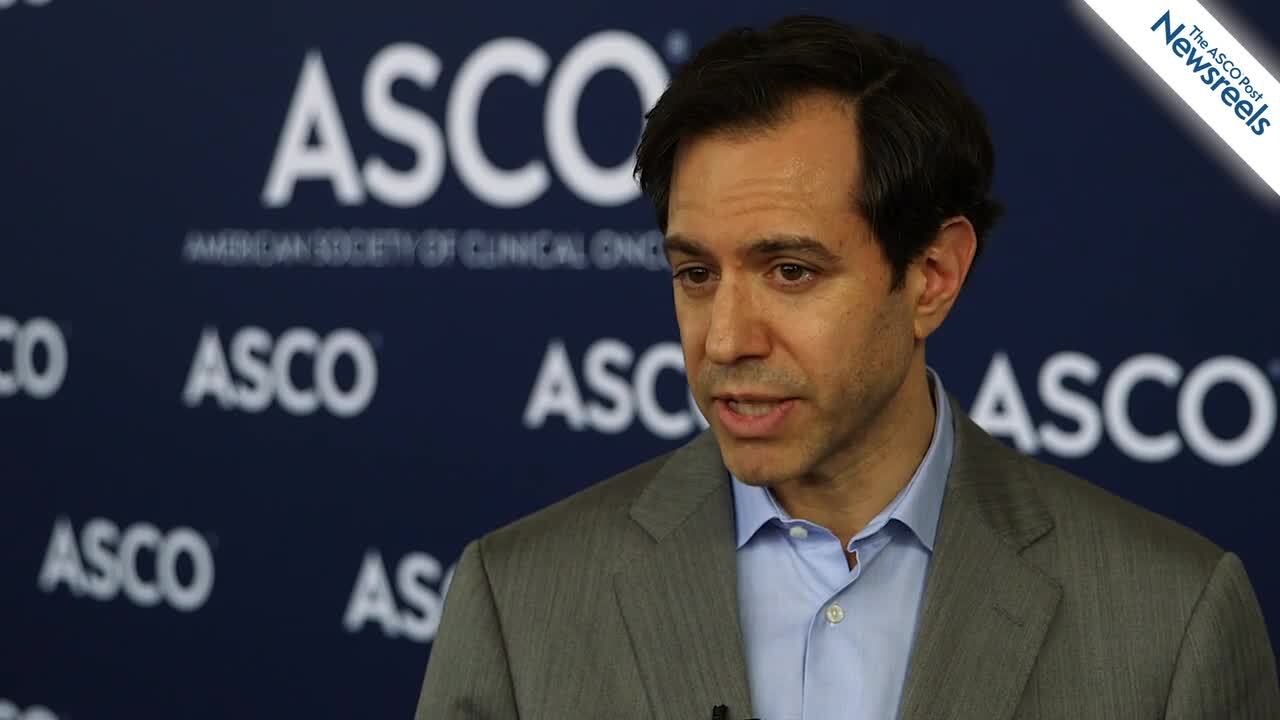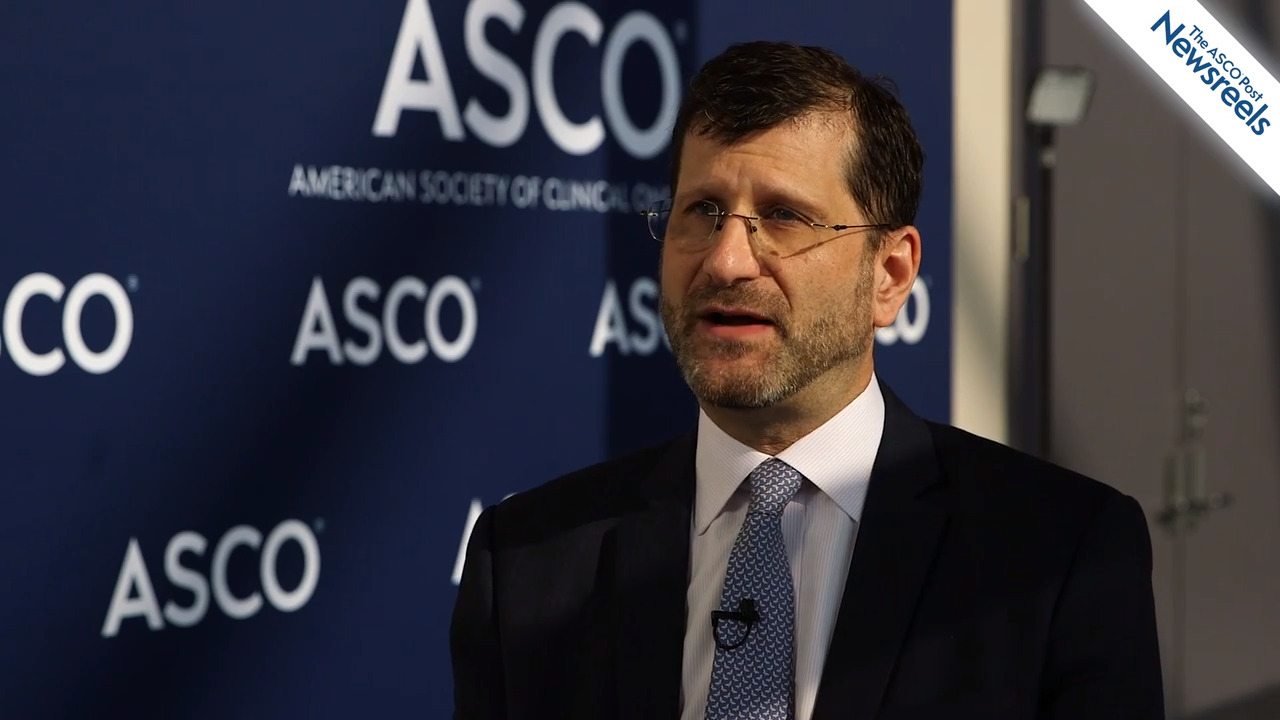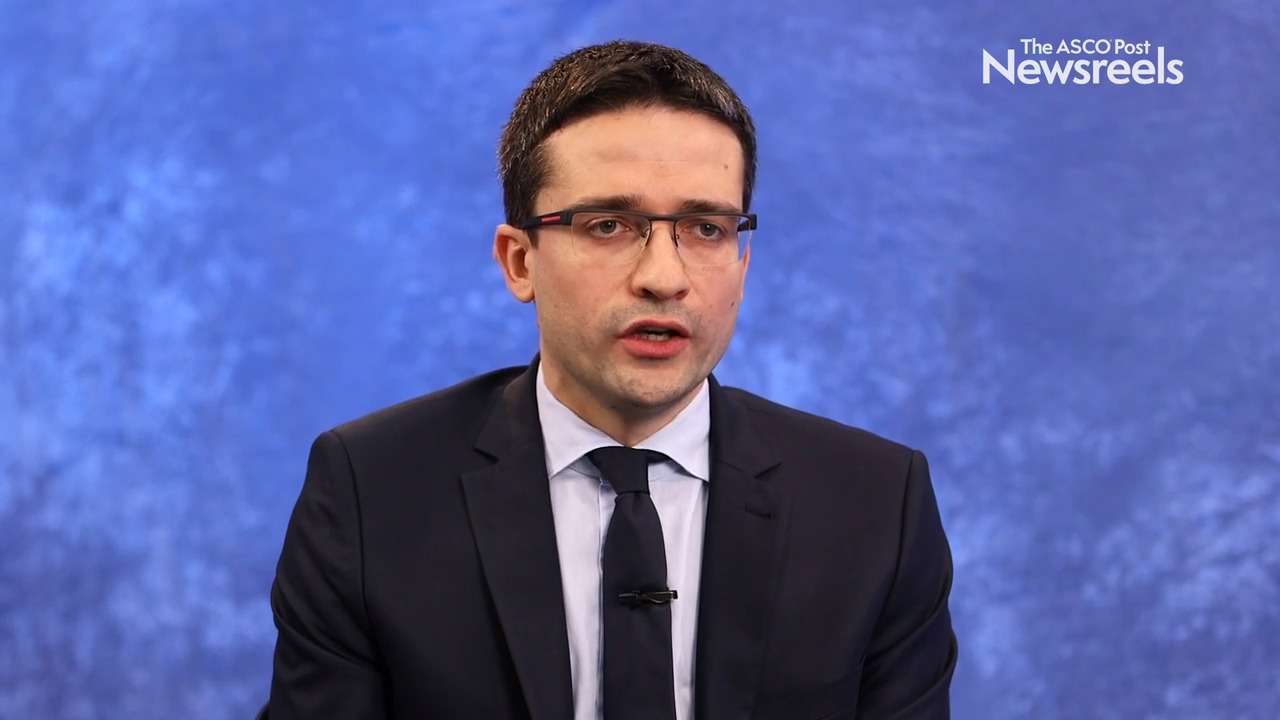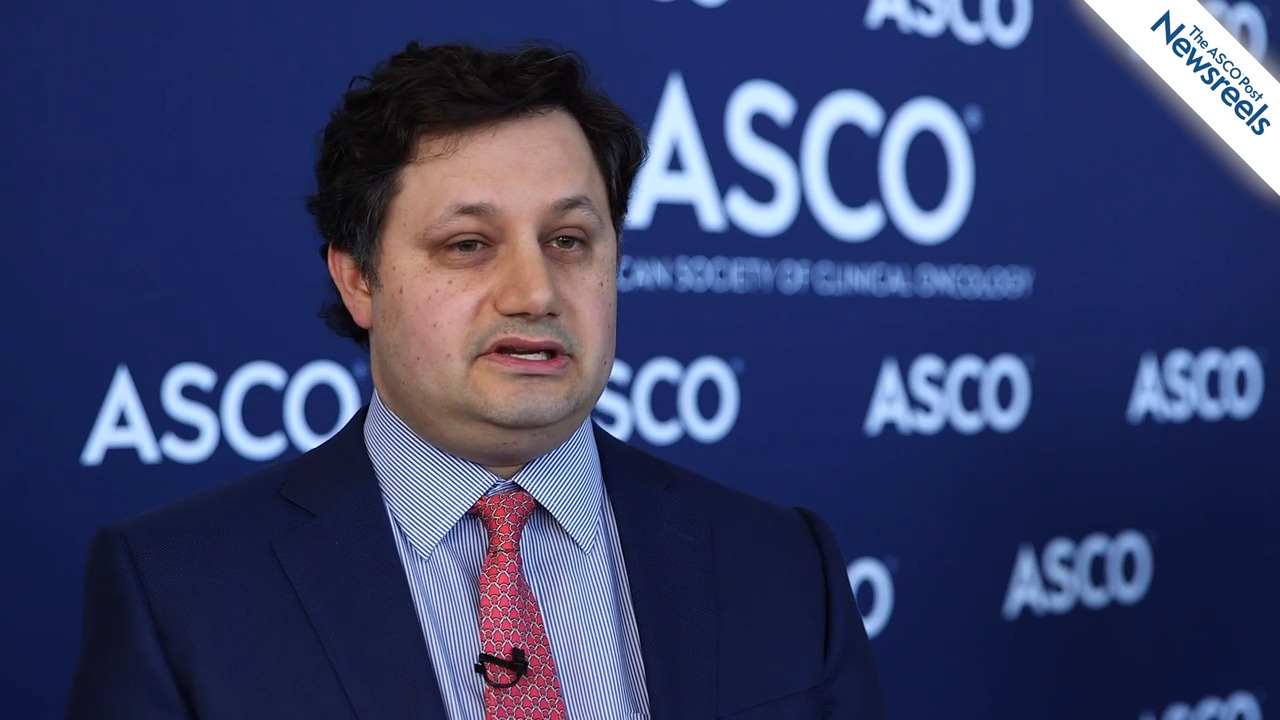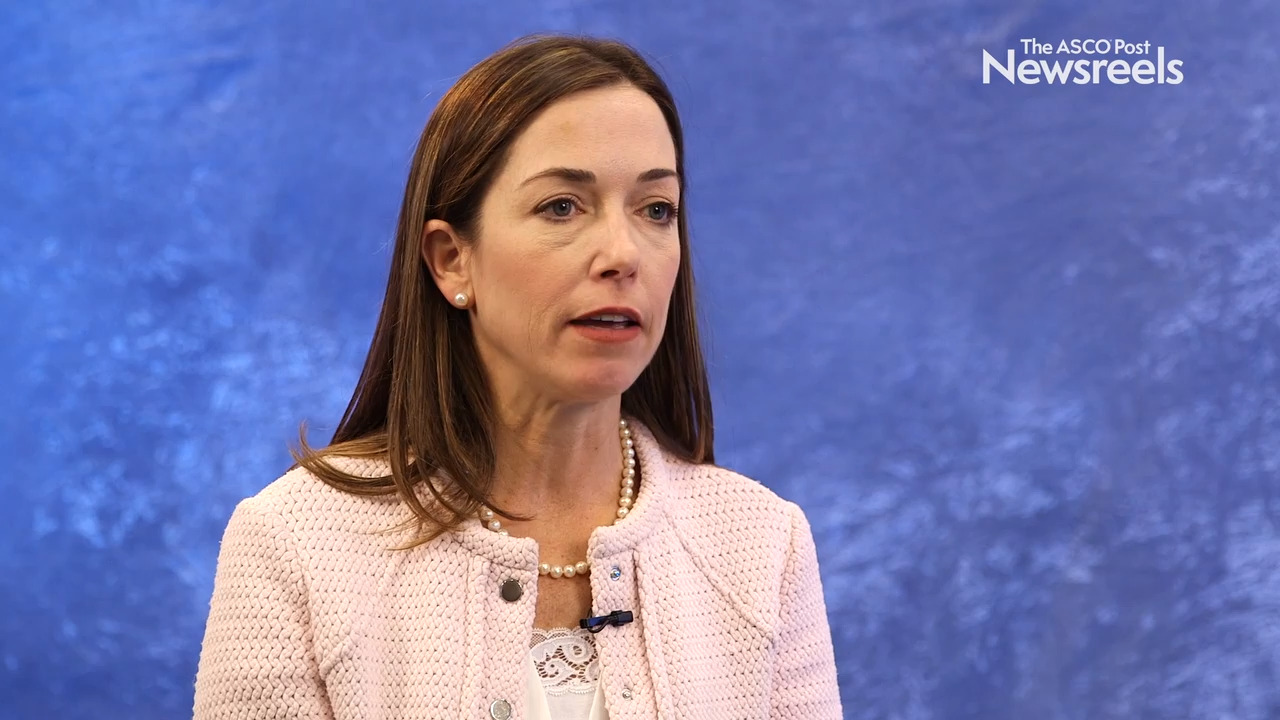Thomas J. George, MD, on Locally Advanced Rectal Cancer: Total Neoadjuvant Therapy
2019 ASCO Annual Meeting
Thomas J. George, MD, of NRG Oncology and The University of Florida Health Cancer Center, discusses the initial phase II results from a clinical trial using total neoadjuvant therapy (including veliparib and chemoradiation treatment) for locally advanced rectal cancer (Abstract 3505).
Matt D. Galsky, MD, of The Tisch Cancer Institute at Icahn School of Medicine at Mount Sinai, discusses phase II study findings that show switch maintenance with pembrolizumab significantly improves progression-free survival in the metastatic setting (Abstract 4504).
Michael J. Morris, MD, of Memorial Sloan Kettering Cancer Center, discusses the phase III findings from the Alliance A031201 trial, which showed that adding abiraterone acetate to enzalutamide did not improve survival in men with metastatic castration-resistant prostate cancer (Abstract 5008).
Matteo Lambertini, MD, PhD, of the University of Genova and Policlinico San Martino Hospital, discusses data from an international cohort study on counseling women with breast cancer who have a BRCA mutation about the safety of becoming pregnant once they complete treatment (Abstract 11506).
Brian C. Baumann, MD, of Washington University School of Medicine, discusses study findings that showed, for adults with locally advanced cancer across five different disease sites, proton chemoradiotherapy was associated with significantly reduced acute adverse events, with no difference in disease-free or overall survival (Abstract 6521).
Sara A. Hurvitz, MD, of the David Geffen School of Medicine, University of California Los Angeles, discusses 3-year outcomes from the first phase III study to test a non-conventional regimen for the neoadjuvant and adjuvant treatment of HER2-positive breast cancer (Abstract 500).
